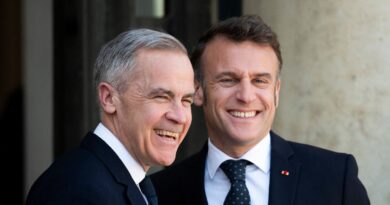Japanese leader arrives in Washington to sell Trump on importance of Asia alliances
HONG KONG — What a difference a few months makes.
The U.S. and its longtime allies Japan and South Korea have been strengthening ties in recent years, both individually and as a three-way partnership, in an effort to counter an increasingly assertive China and North Korea. But recent political changes in all three countries have injected new uncertainty into their relations.
South Korean President Yoon Suk Yeol is facing an impeachment trial over his botched attempt in December to declare martial law, and it will be months before the country has a clear leader. In Japan, Prime Minister Shigeru Ishiba is hamstrung by a minority government after his scandal-ridden Liberal Democratic Party performed poorly in an October parliamentary election.
And in the United States, voters elected a president in November who disdains alliances and prefers to deal with countries individually, and who in his first term accused Japan and South Korea of “freeloading” under the U.S. security umbrella.
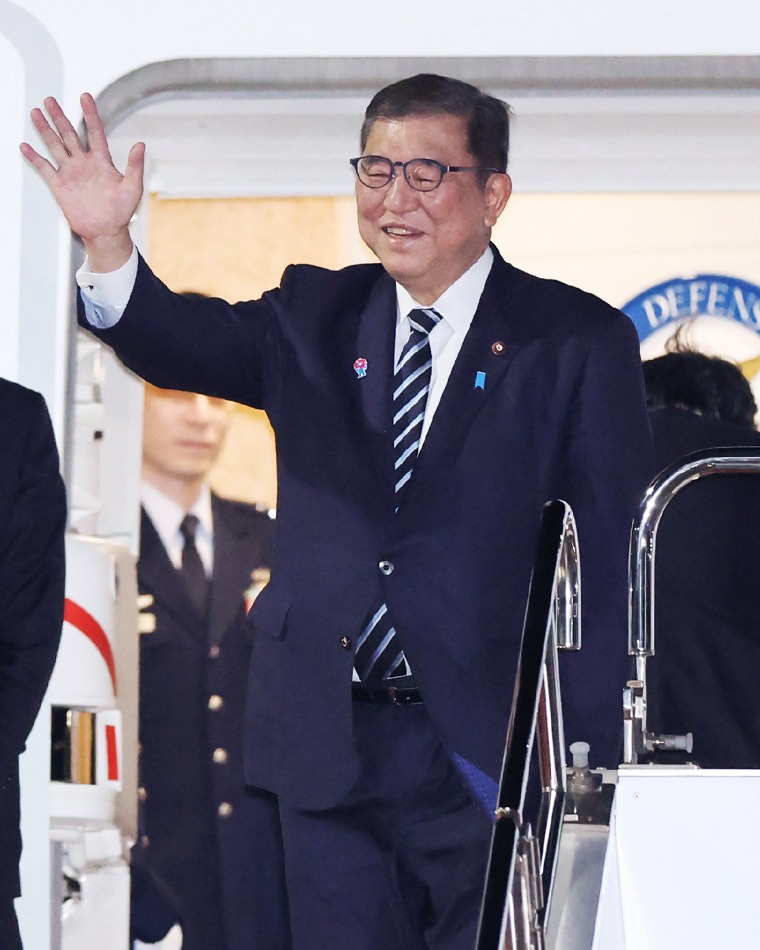
On Friday, Ishiba is set to meet with President Donald Trump at the White House, in the first major indication of how the new U.S. administration will interact with the two Asian democracies.
Like the U.S., both countries are wary of China’s rise but also count it among their top trading partners. The challenge for Ishiba will be to sell Trump on the importance of U.S. security commitments in Asia and avoid the kinds of tariffs that Trump has imposed on China and threatened to impose on U.S. allies Canada and Mexico.
Ishiba said he planned “to work hard to establish a relationship of mutual trust” during his visit with Trump.
“I hope that we can confirm that by Japan and the U.S. cooperating on issues such as the economy and security, this will bring peace and allow for development not for the free and open Indo-Pacific region but also for the rest of the world,” the Japanese leader told reporters in Tokyo on Thursday.
Japanese visit
Ishiba is looking for a “neutral outcome” from the visit, and is most likely just happy to be the second foreign leader to meet with Trump after Israeli Prime Minister Benjamin Netanyahu, said Michael Cucek, an assistant professor of Asian studies at Temple University in Japan.
“He’s not going to try to win any points or get any gifts from the United States,” he said. “He knows that there are none available.”
Ishiba is likely to emphasize Japan’s role as the largest foreign investor in the U.S. — in December, the head of the Japanese tech conglomerate SoftBank, Masayoshi Son, pledged to invest $100 billion in the U.S. over the next four years at a meeting with Trump.
Business ties with Japan have been strained by the $15 billion bid by its largest steelmaker, Nippon Steel, for Pittsburgh-based U.S. Steel, which former President Joe Biden blocked last month citing national security concerns. Trump also opposes the deal, which Nippon Steel says it has not given up on.
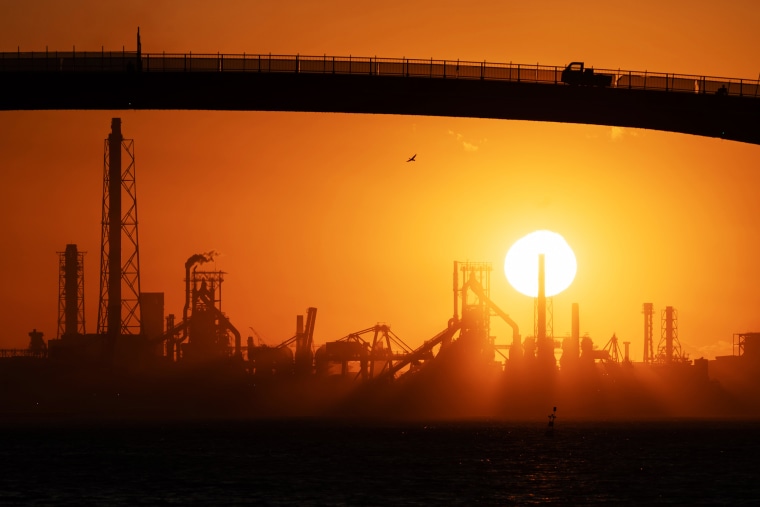
The blocking of the deal is unlikely to fundamentally alter the U.S.-Japan relationship, said Anthony Rapa, partner and co-chair of the International Trade practice group at Blank Rome in Washington, given both countries are more concerned with Indo-Pacific security and countering China.
“That said, the rejection of the deal genuinely did sting, considering the historical closeness of the two nations, Japan’s standing as the top U.S. investor, and the fact that no Japanese investment had ever been blocked on national security grounds before, at least not publicly,” he said in an email.
Takahiro Mori, vice chairman of Nippon Steel, said Thursday that the company would be watching the Ishiba-Trump summit closely and that he hoped it would be “a catalyst that would open the way towards the future.”
Cucek said Ishiba would “utterly avoid” raising the topic with Trump, especially since Nippon Steel is suing over the blocking of the deal.
“There’s no reason to bring it up,” Cucek said. “There’s no advantage that he gets out of it.”
Ishiba is unlikely to get along with Trump as well as Shinzo Abe, the former Japanese prime minister who was assassinated in 2022 and who had a close personal relationship with Trump. Cucek said that the current Japanese leader has a fundamentally different temperament from Abe — who won over the President with a charm offensive that involved flattery and golf.
“Nevertheless, in dealing with Donald Trump, he has this playbook from Abe of simply flattering the man,” he said.
Anxiety in South Korea
In South Korea, there are worries that the country could be falling behind in engaging with the Trump administration due to the political instability after Yoon’s short-lived martial law order.
The Constitutional Court has up to 180 days to decide whether Yoon, who is suspended from presidential duties after being impeached by lawmakers, should indeed be removed from office. If he is, South Korea would then have 60 days to hold a presidential by-election.
Though Trump had a phone call with Yoon shortly after his election victory in November, he has not spoken with acting South Korean President Choi Sang-mok.
“There is no way that Trump will actually engage directly” with an acting president, said Jennifer Lee, a principal at the Asia Group in Washington who focuses on the Korean Peninsula.
“So waiting six months to have that kind of highest-level meeting will definitely hurt the country,” she said, “especially given the uncertainty around the Trump administration’s policies.”
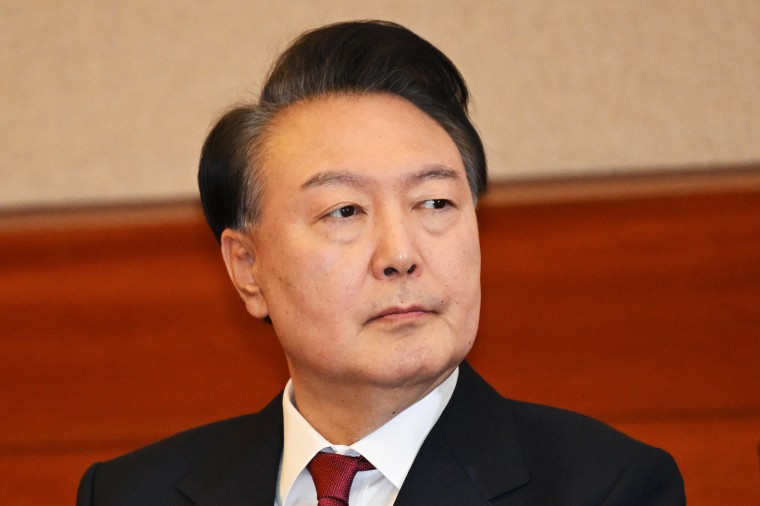
There has been other contact, however, including a phone call last month between Secretary of State Marco Rubio and his South Korean counterpart, Cho Tae-yul, and a call Wednesday between National Security Adviser Mike Waltz and his South Korean counterpart, Shin Won-sik.
One area where South Korea is eager to coordinate with the U.S. is North Korea, where leader Kim Jong Un has been advancing his nuclear and ballistic missile programs and ratcheting up his hostile rhetoric against the U.S., South Korea and others.
Trump has said he plans to reach out to Kim, whom he met with three times during his first term.
“There is a lot of anxiety, especially on them not being included in the possible U.S.-North Korea dialogue,” said Lee, who recently returned from a trip to South Korea.
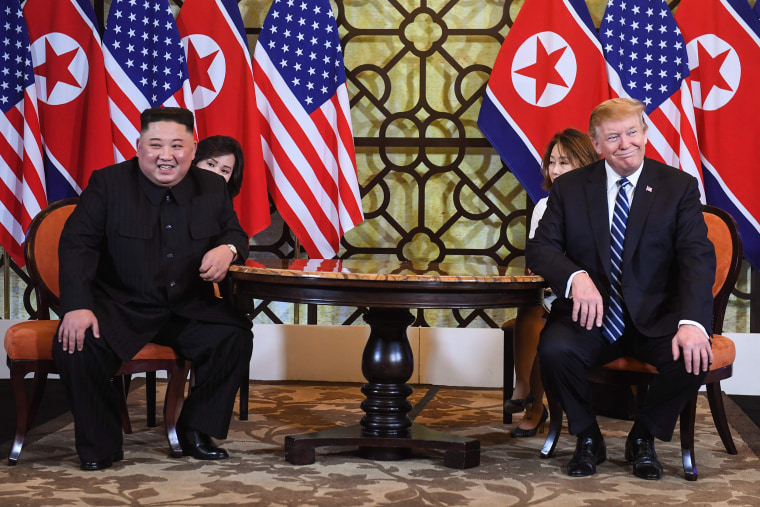
Japan, which is also directly threatened by North Korea, shares a number of potential challenges with South Korea in a new Trump administration.
Both countries host thousands of U.S. troops, and both countries came under pressure during Trump’s first term to shoulder more of the cost for that.
Tariffs are another potential concern, after Trump announced 25% tariffs on U.S. allies Canada and Mexico before putting them on hold at the last minute. South Korea, which has a highly export-dependent economy, is considered especially vulnerable, and South Korean companies such as Hyundai, Samsung and LG are exposed because of their facilities in Mexico and China, where the U.S. did impose a 10% tariff on Tuesday.
Though both South Korea and Japan would be affected if Trump imposes a blanket tariff on all U.S. imports as he has floated, both Lee and Cucek said there is no obvious reason for them to be directly targeted the way Canada, Mexico and China were over their alleged roles in the U.S. fentanyl crisis.
“There is nothing that provides the excuse for the use right now of tariffs,” Cucek said.
Jennifer Jett reported from Hong Kong, Arata Yamamoto from Tokyo and Stella Kim from Seoul, South Korea.



